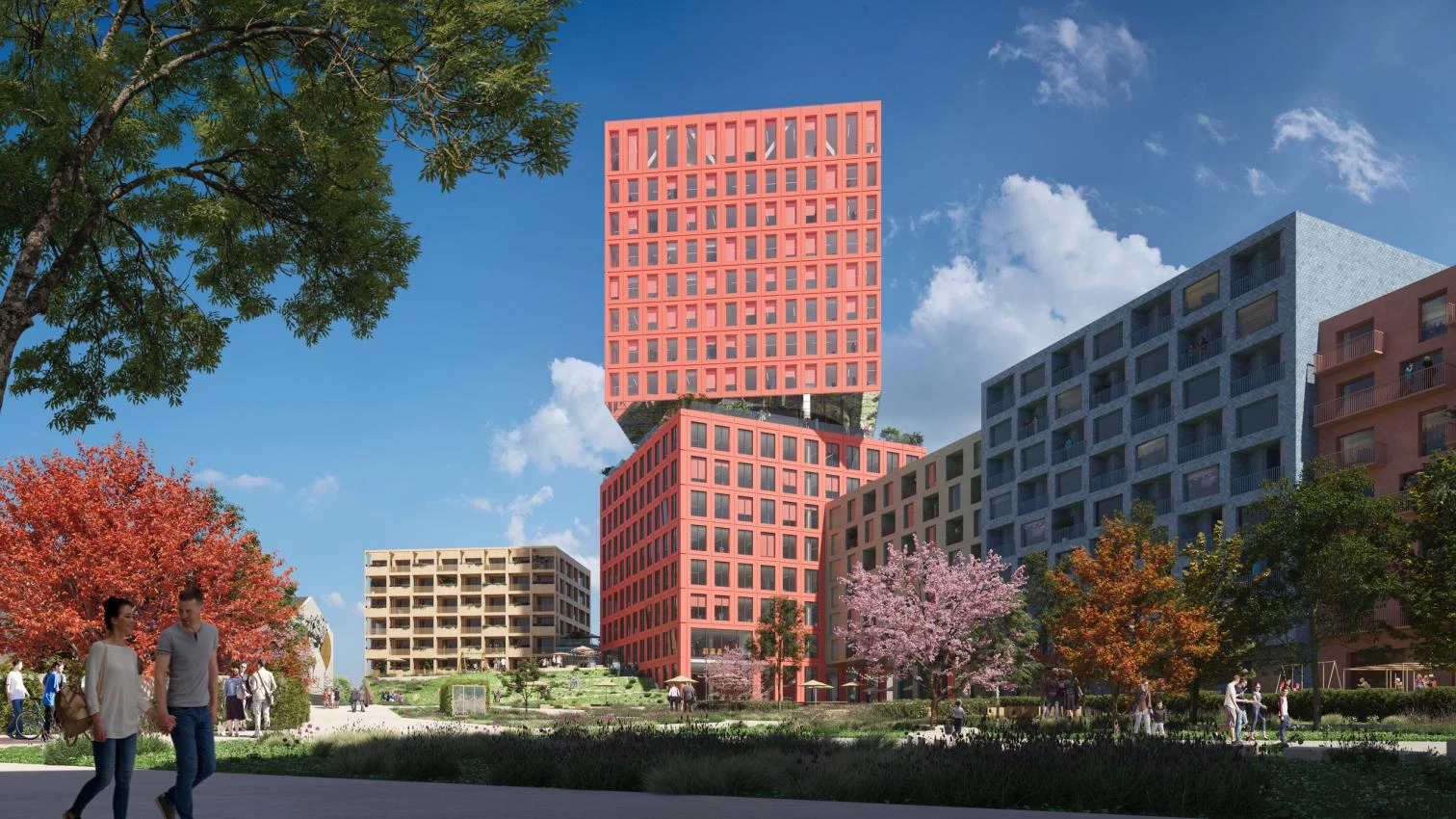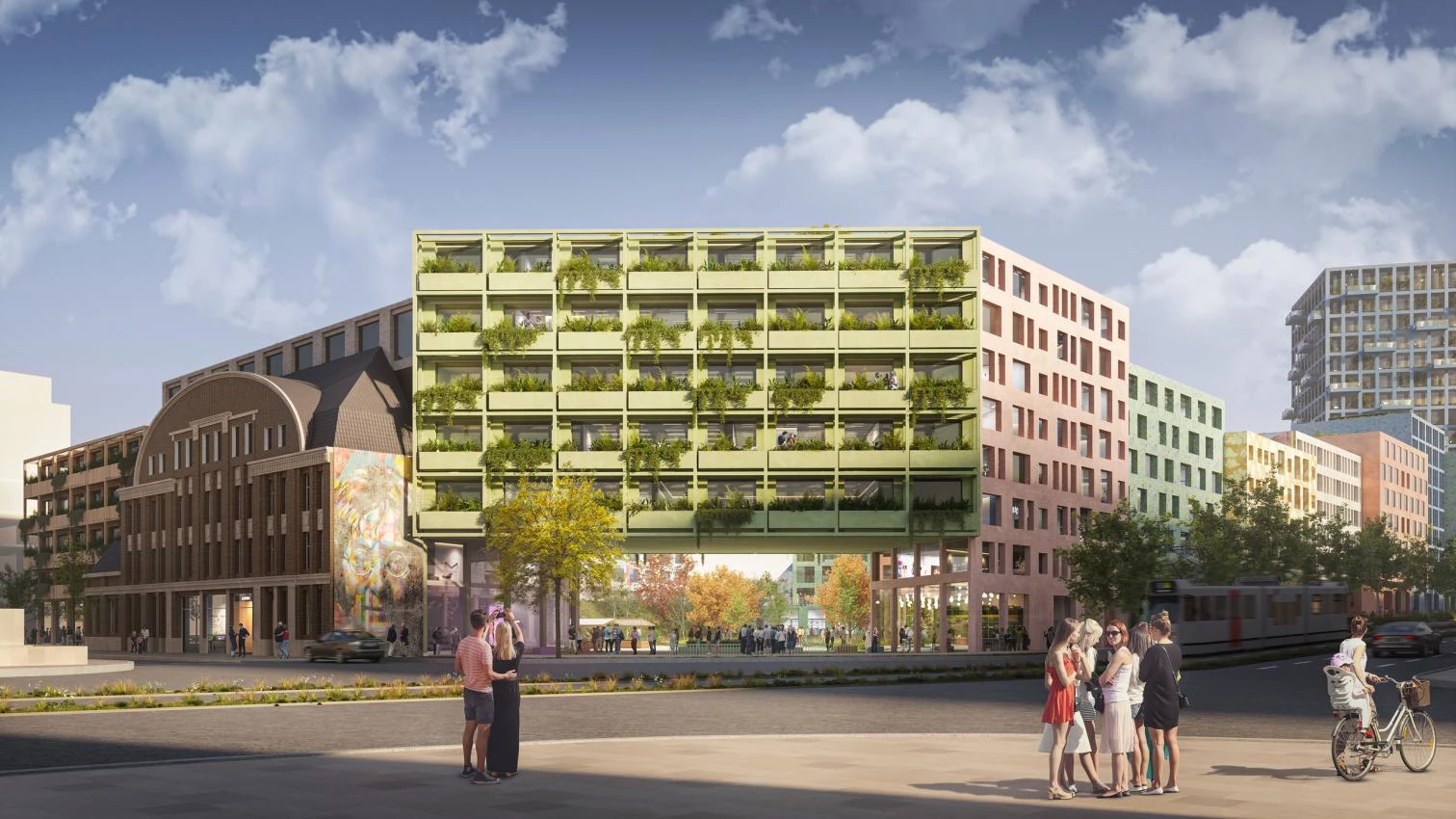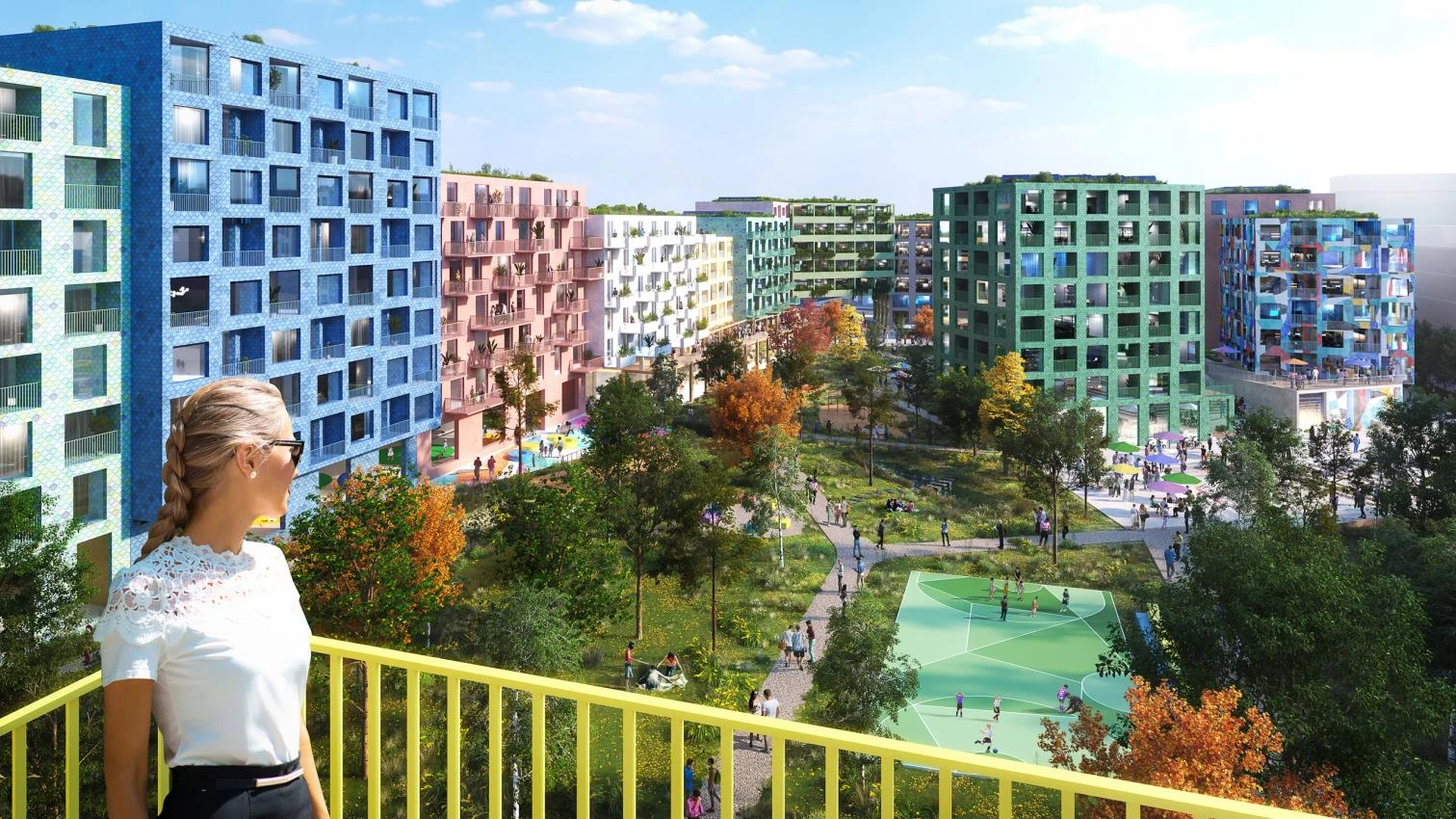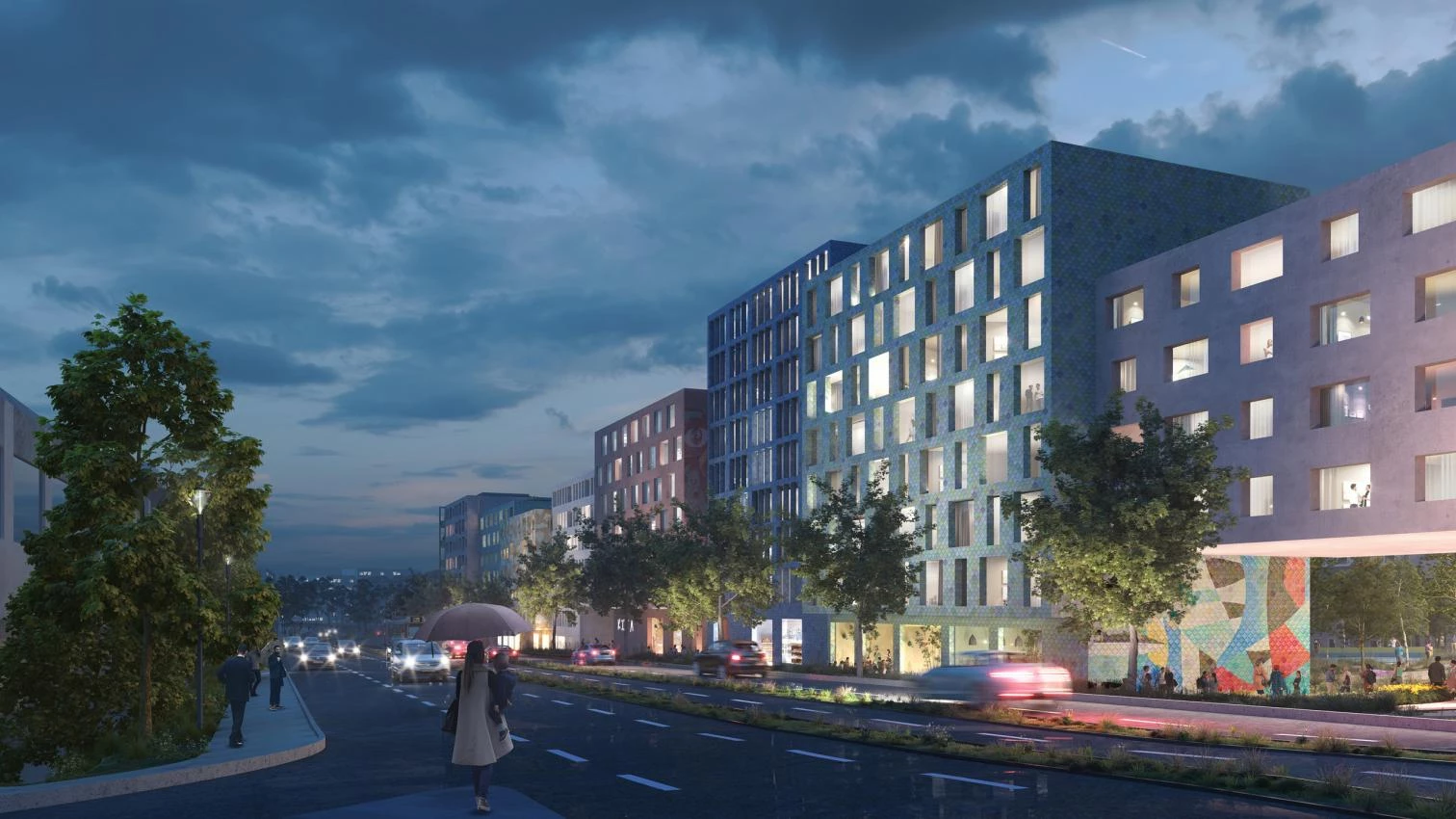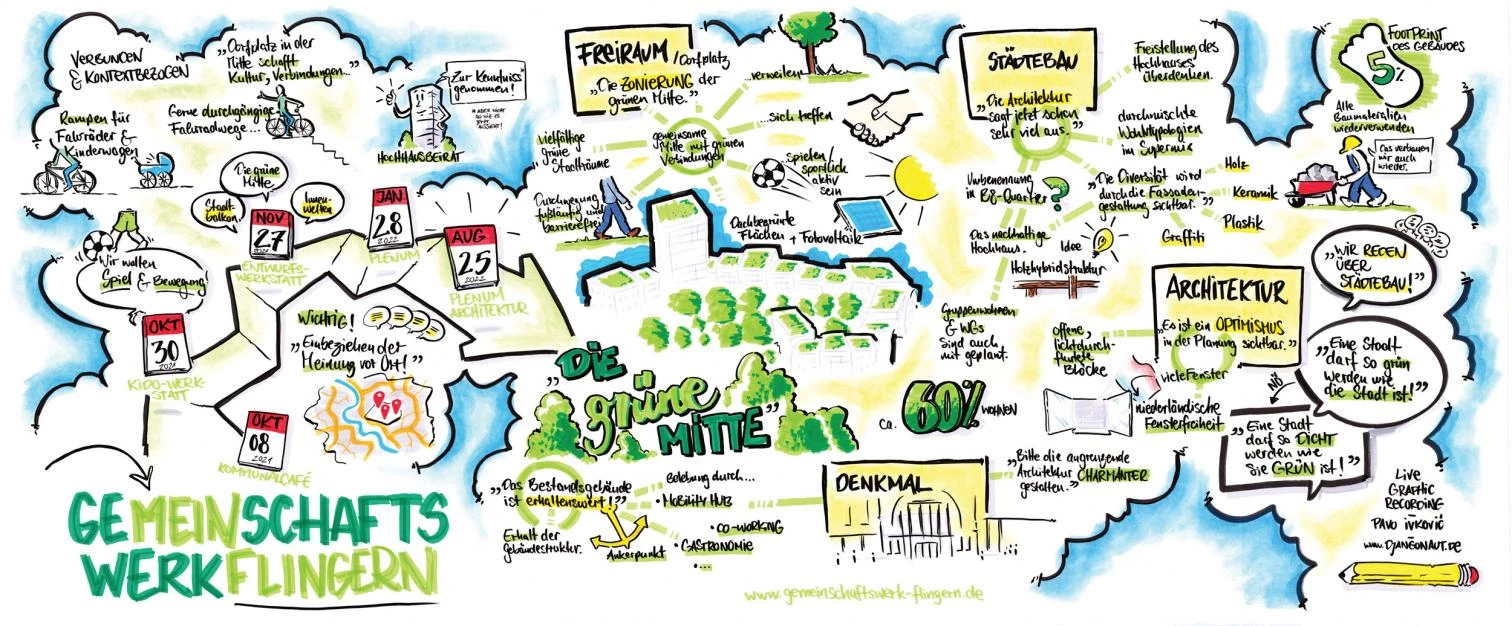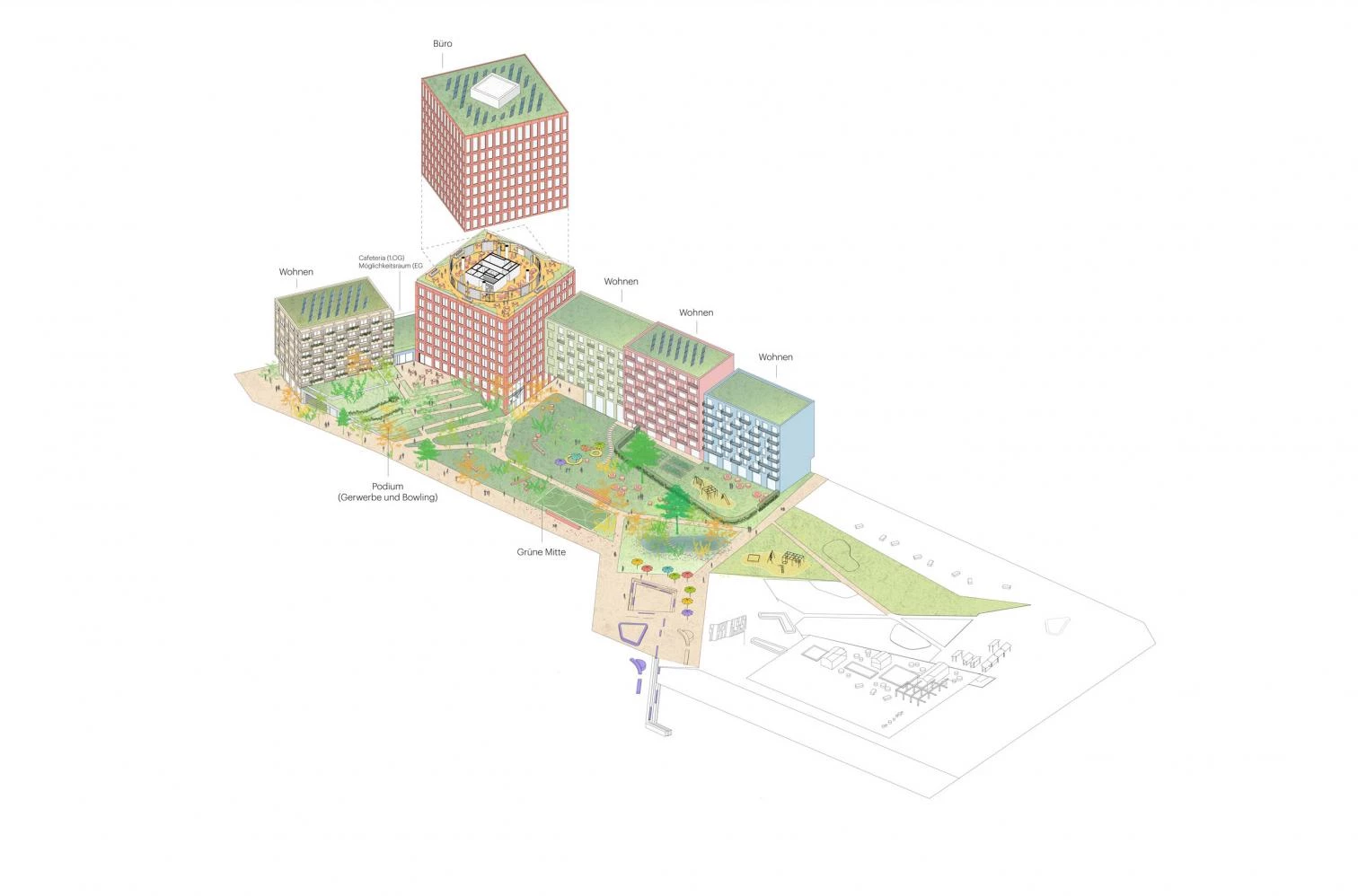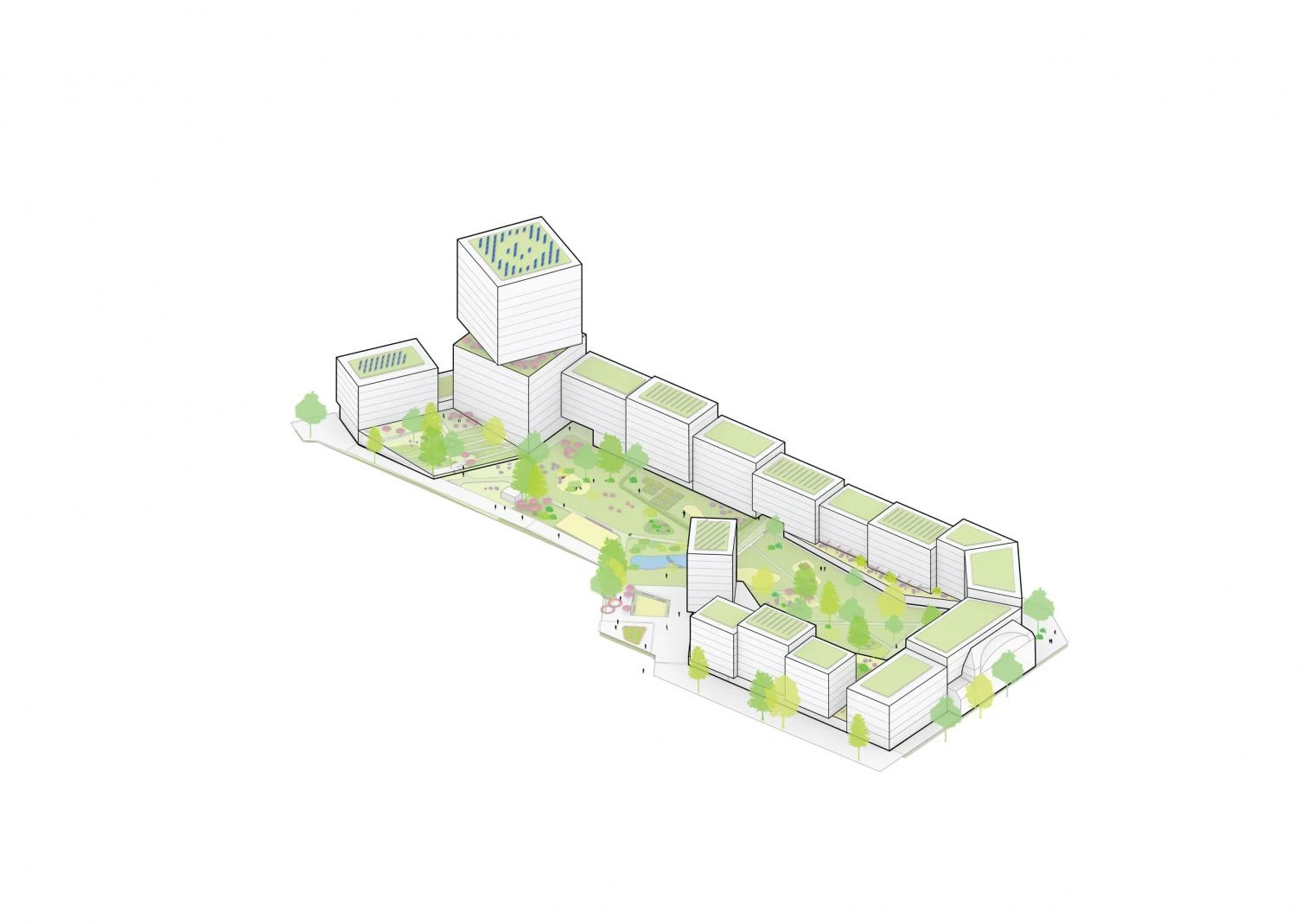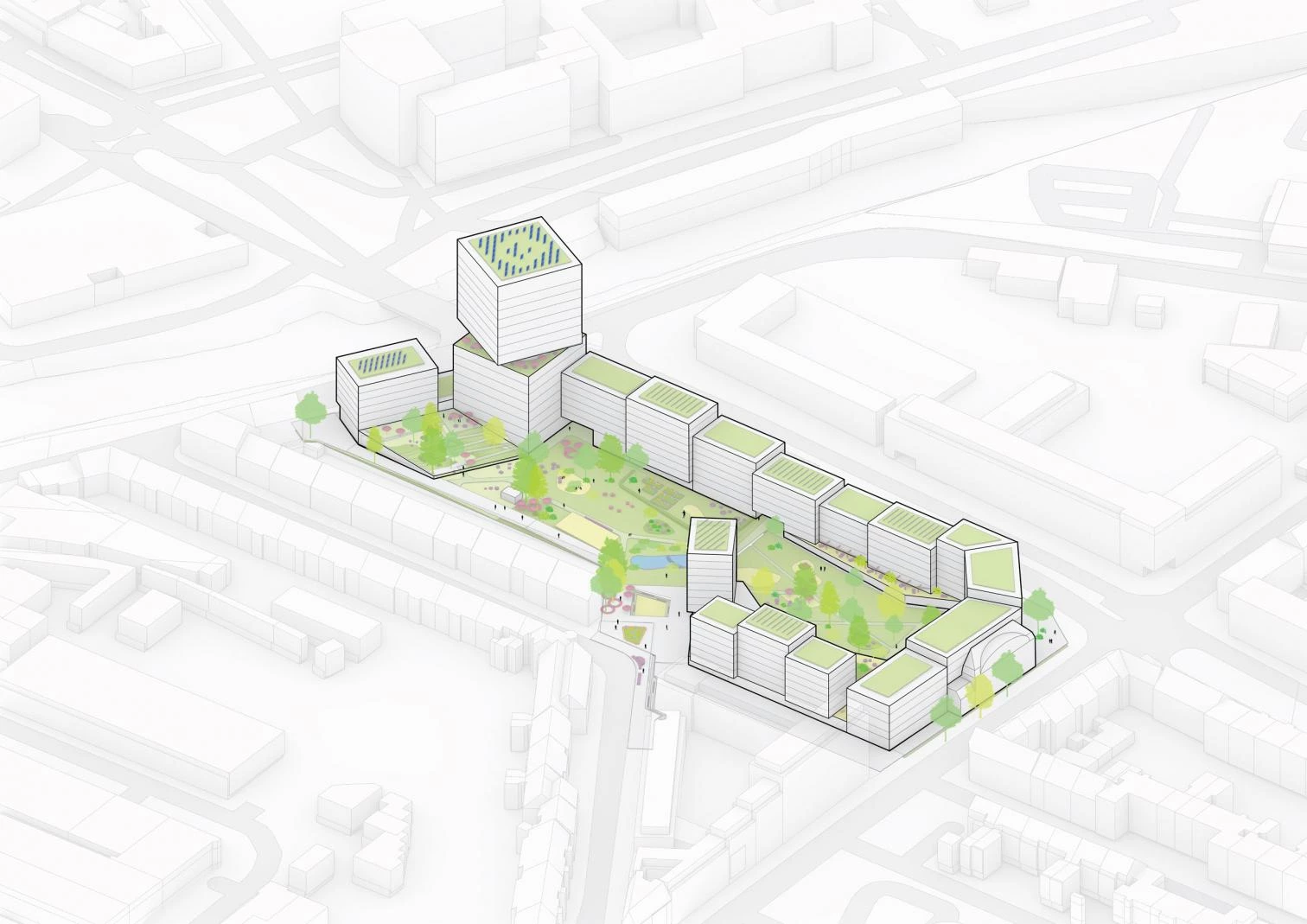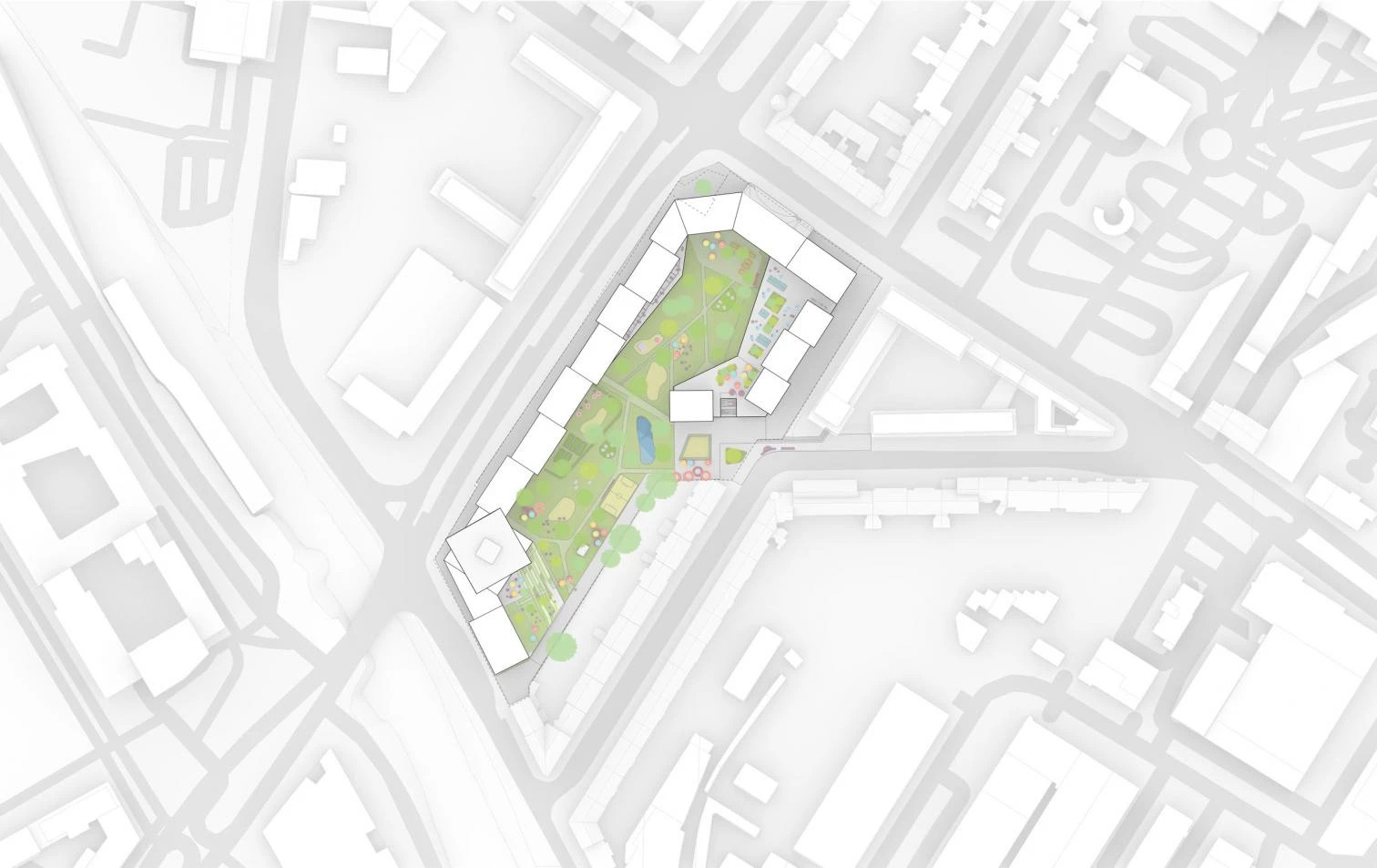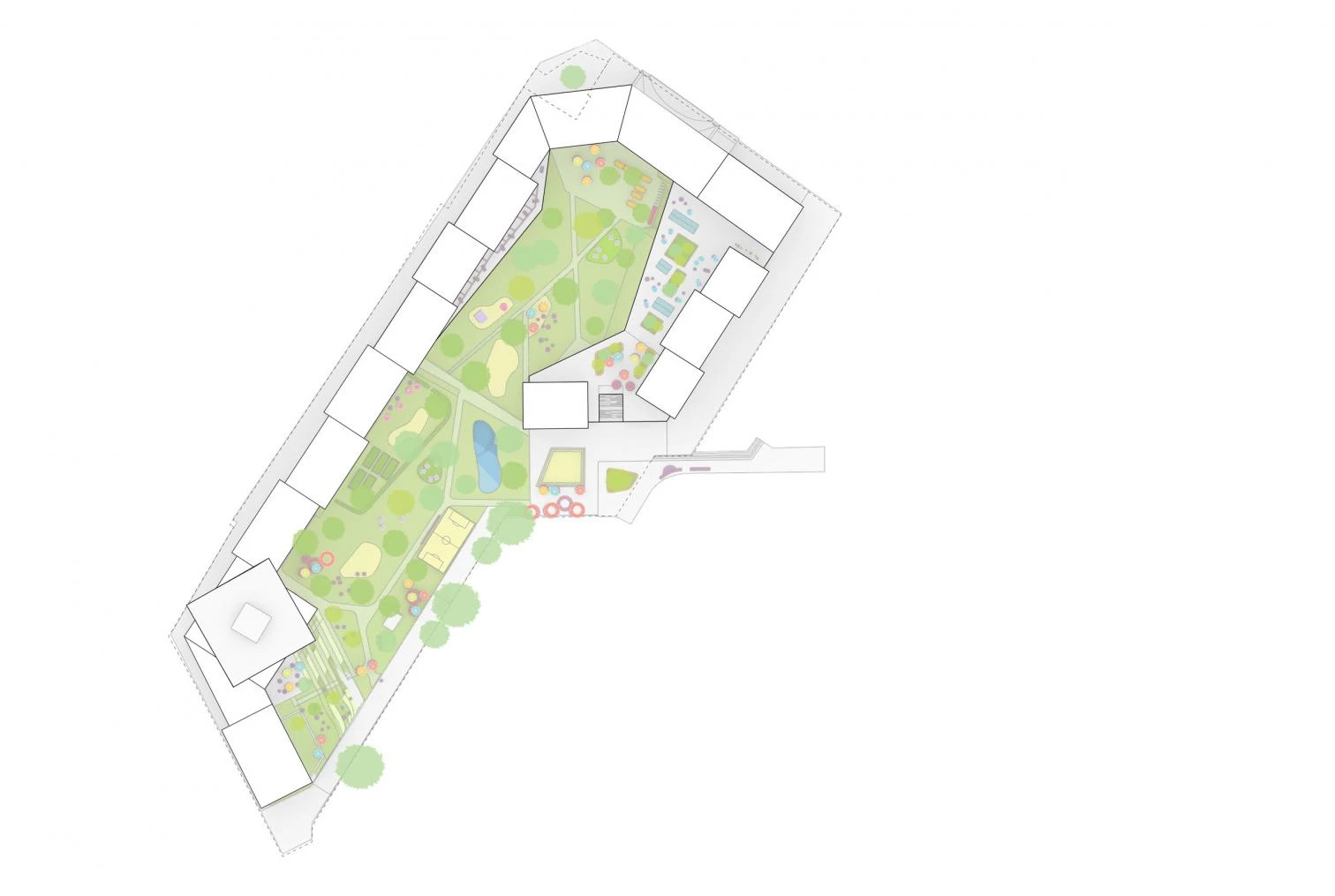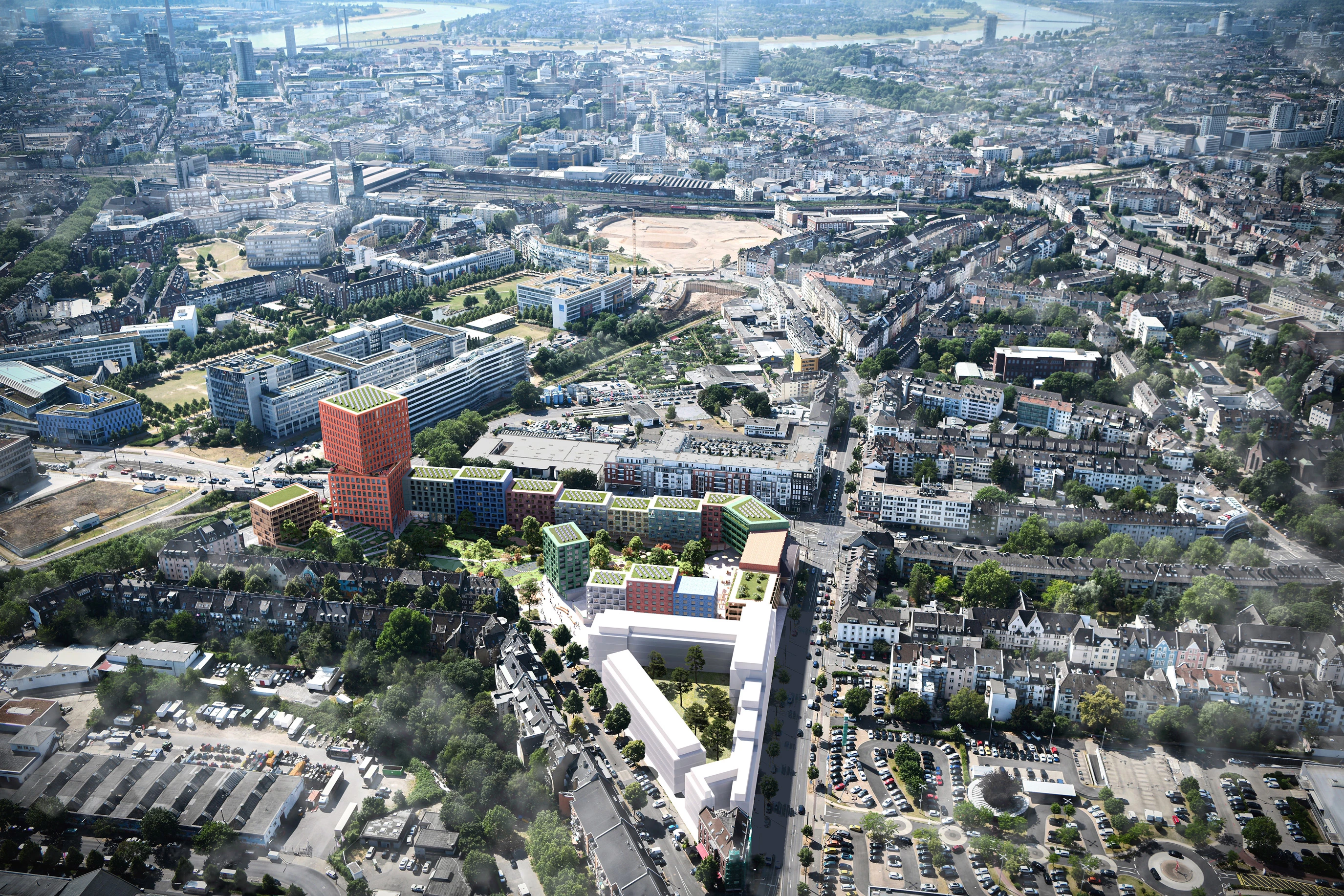Grüne Mitte in Düsseldorf
MVRDV LOLA Landscape Architects- Type Landscape architecture / Urban planning
- City Düsseldorf
- Country Germany
The process of building in an existing neighborhood is often fraught with conflict, so open communication, negotiation, and compromise with the local community are important. It is with this attitude of engagement with the neighborhood that the Grüne Mitte urban development project in Düsseldorf has been developed, including communal spaces and five hundred living units, approximately half of which will be social or affordable housing.
The site is currently occupied by an underused shopping center built eleven years ago. It borders with Kiefernstraße, a street known to be a hotspot for squatters since the 1980s, and for colorful street art on facades. With the involvement and support of neighbors, a participation process was carried out through workshops and interviews, and the input was combined with the ideas of the developer Cube Real Estate.
Several proposals were drawn up so that residents could debate on their pros and cons. The winning project was Grüne Mitte, which presents a series of blocks snaking around a central green space. With a strong focus on sustainability, the scheme also features sports facilities, children’s playgrounds, an office high-rise, and residential blocks, where the facades are treated differently to reflect the diversity of the future users, and include urban art.
